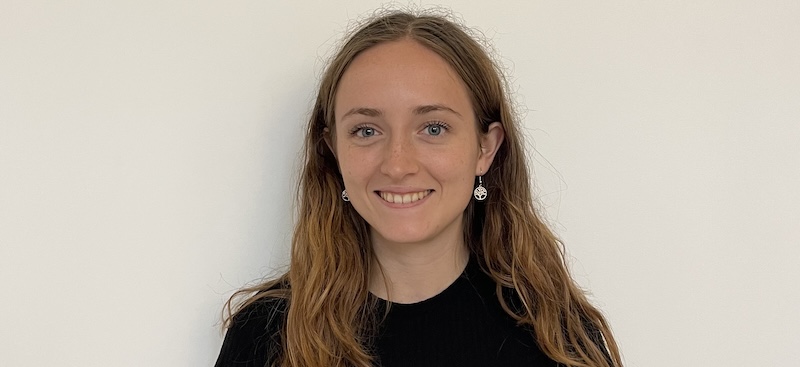BPP LLM student Maria Shakir discusses the highs and lows of her SQE experience as well as her key revision strategies and top tips for success

Since its introduction in 2021, the Solicitors Qualifying Examination (SQE) has been a source of dread for future solicitors around the country. To find out what these exams are really like (and get some top tips for passing them) I sat down with recent SQE candidate Maria Shakir, ahead of her appearance at Legal Cheek’s virtual student event, ‘Which SQE subjects do candidates find the hardest? — with BPP’, taking place tomorrow.
Originally from Austria, Shakir moved over to the UK four years ago to study her LLB at the University of Westminster. Having graduated with first class honours, she took the next step on her qualification journey by enrolling on BPP’s flagship SQE Master’s, the LLM SQE 1&2. She flew through SQE1 in January, passing first time, then went on to sit her SQE2 in May and is currently waiting for her results.
Reflecting on her success in SQE1, an assessment known for its low pass rates which have ranged between 48% and 60% for first-sitters, Shakir mentions some of the key revision strategies that worked for her. “I think it’s very important to start early on,” Shakir tells me. This means engaging with the course from the beginning, rather than cramming close to the exam dates: “I went to all my workshops at BPP and did the set preparation in advance,” she says.
Around one and a half months before she sat SQE1, Shakir committed to a period of intense focus, explaining, “I locked in completely and I focused on studying.” As her SQE1 date drew closer, completing timed practice multiple choice questions (MCQs) was a central part of Shakir’s preparation strategy. “In the two weeks before the exams, I did at least one practice exam a day,” she tells me. “I sat, without my phone or any distractions, and timed myself – I challenged myself to finish every question in around a minute instead of the two minutes that you have in the exam”. Getting used to these questions is vital for passing SQE1, Shakir tells me: “I understood most of the content already,” she says, “so what I needed to focus on was how the questions work. They have a very specific style so you need to learn how the questions are asked and how you get to the right answer.”
Shakir also emphasises the importance of looking after yourself, even when adhering to a challenging revision schedule. “It was very important to me that I slept my eight hours every night,” she says. “You can study all day but you won’t be able to retain any information if you’re running on a lack of sleep.” She also kept her morale up by finding interesting and attractive places to revise. “I tried to study in libraries that I found beautiful,” she tells me. “Not many students know this but if you’re studying the SQE, you can use the Law Society Library. It’s not that big but it’s normally empty – that was one of my favourite study spots.” She also recommends finding nice cafes to have a coffee in and making time for walks – “You still have to enjoy your life while you’re revising,” she laughs.
I ask Shakir how she found delving back into some of the underlying law topics from her LLB. “During the SQE prep course we only study the extra modules that aren’t covered in the undergrad, like criminal practice, dispute resolution and so on,” she explains. “So, I had to go back and revise tort law, contract law, public law and EU law – thankfully BPP has textbooks for these areas so I didn’t have to go back to my notes from undergrad!” she says. Although initially daunted by the breadth of SQE content, Shakir found that the underlying law topics came back to her relatively easily: “When you look back at these topics you do remember them – it’s a refresher,” she says. She also offers some advice to current law undergraduate students: “Learn your course content properly, don’t just cram it to pass your first-year exams, really learn it – otherwise you’ll have to do it all over again on the SQE!”
As Legal Cheek’s upcoming event with BPP will focus on the parts of the SQE that students tend to struggle with, I am curious to know which elements of the exam Shakir found most challenging. “My biggest challenge was with SQE2,” she responds. “I don’t have any legal work experience so I had no experience with drafting documents or with the oral skills.” As SQE2 heavily focuses on practical skills which were new to her, Shakir found it difficult to gauge whether she was ready for the exam. “We had practice sessions with BPP to develop these skills during the four weeks of teaching for SQE2 – you really have to take advantage of this,” she advises fellow law students.
On the support she has received from BPP during her studies, Shakir is full of praise for her tutors who she found “very approachable” – “any questions we have, we can always email them or speak to them before or after lessons which has been so useful.” Shakir also mentions how much she has appreciated the personal feedback which her tutors have provided on her tasks. This supportive environment was key for Shakir when she was choosing an SQE provider, “I spoke to staff and students from BPP and thought it would be a great fit for me – I liked the way they structure the course and the support they provide.”
With the SQE 1 and 2 behind her, Shakir is now undertaking BPP’s Essentials for Practice Master’s term, for which students choose to focus their further learning on one of three practice steams: general practice, commercial or corporate. Shakir has opted for the corporate pathway and is taking modules in debt finance, private acquisitions and commercial issues in corporate transactions. “I always wanted to go into corporate law,” she explains “It’s so varied and you get exposure to many different kinds of legal work, so when I had the option to study this area at BPP, of course I chose it!”
Maria Shakir will be on the panel at TOMORROW’s virtual student event, ‘Which SQE subjects do candidates find the hardest? — with BPP’. Register to attend.























